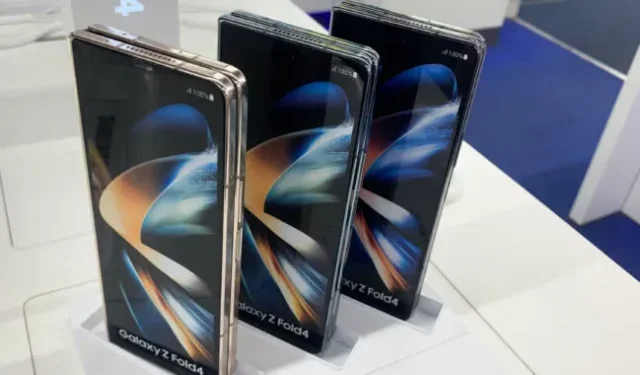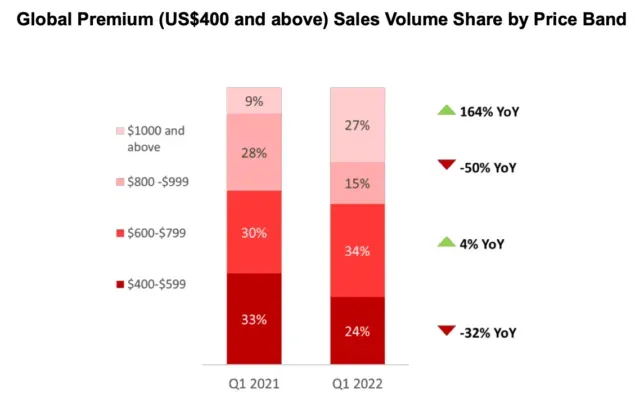Demand for smartphones falls on all but the most expensive models

Smartphone manufacturers are reporting a significant drop in smartphone purchases, and analysts believe this is due to people holding their phones longer. But the market for expensive phones is still high – people still like to buy them.
Nearly all smartphone makers except Samsung and Apple reported lower smartphone shipments in Q2 (April to June) 2022. According to International Data Corp., global smartphone shipments were down 9 percent last quarter compared to 2021. Chinese brands such as Xiaomi, Vivo and Oppo saw a noticeable decline. Xiaomi reported a 26% drop in smartphone shipments in the second quarter, with a similar drop in revenue.

In a Wall Street Journal report, analysts and CEOs pointed to inflation, more people leaving their homes after a prolonged pandemic, and a much softer Chinese market. Chip and component makers recently reported a similar decline in demand as they sought to invest in more manufacturing capacity.
The WSJ cites analysts reflecting on the longevity of phone ownership, which has been on the rise over the years. According to surveys conducted between 2015 and 2019, the average length of phone ownership has steadily increased, from about 20 months to more than two years. Z, Millennials, Xers, and Boomers all agreed that “smartphones today are pretty much the same.”
And yet, according to Counterpoint Research, sales of $1,000+ smartphones have surged in the first half of this year. That segment, which includes most of Apple’s lineup as well as Samsung’s flagship and foldable models, accounted for only about 10 percent of the market but accounted for 70 percent of its profits, according to Counterpoint. People with enough money to ignore rising costs still seem to be able to enjoy slightly better cameras and screens.
The pandemic-related lockdown in parts of China, which continued into the second quarter, dampened demand, along with supply chain issues and store closures that came with it. With the addition of inflation, demand has dropped so much that even Apple has had to cut prices on its iPhone 13 Pro and Pro Max models, the WSJ reports, going so far as to even advertise them.
Analysts suggest that smartphone buyers may eventually grow tired of their current models and upgrade either later this year or next year.
Leave a Reply